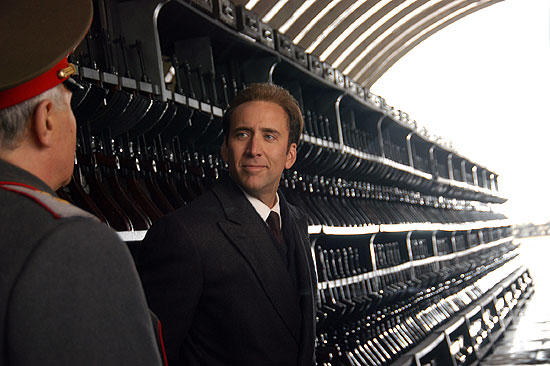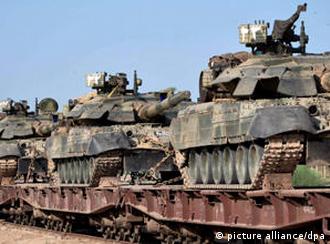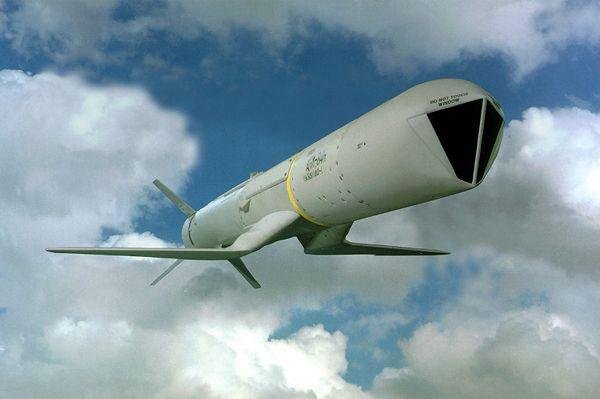You are using an out of date browser. It may not display this or other websites correctly.
You should upgrade or use an alternative browser.
You should upgrade or use an alternative browser.
WAR
- Thread starter just me
- Start date
More options
Who Replied?- MBTI
- INTJ
Yes.
It is part of human nature.
It is part of human nature.
Cornerstone
Well-known member
- MBTI
- Pisces
- Enneagram
- Metal Goat
I assume you mean the physical world. The word 'real' is so debatable.
Ugh. I don't know. Conflict might be unavoidable and necessary but war? I don't think so.
I think there is a difference between Conquest and War as well. The US masks Conquest as War so the consequences will be a shock to many who believed they were at war.
Britain will go to utter shit because of the Empire so you're not alone. Just take it on the chin, it's debt collection and almost every person on here has benefitted in some way from Conquest whether it's a comfortable admission or not and whether it was the only way we could've gone in hindsight.
Ugh. I don't know. Conflict might be unavoidable and necessary but war? I don't think so.
I think there is a difference between Conquest and War as well. The US masks Conquest as War so the consequences will be a shock to many who believed they were at war.
Britain will go to utter shit because of the Empire so you're not alone. Just take it on the chin, it's debt collection and almost every person on here has benefitted in some way from Conquest whether it's a comfortable admission or not and whether it was the only way we could've gone in hindsight.
INFJ16
Well-known member
- MBTI
- Human
Technically, I would say it is avoidable, but it never will be avoided. People could make decisions that wouldn't bring about war, but no one is perfect. In the real world war is inevitable. You can't even say if everyone did the right thing then we would have peace because people have different world views and opinions on what is "right" and "wrong." Anyway for the most part, each side in a war believes they are in the right. It's not possible to synchronize everyone's values and beliefs.
Lark
Rothchildian Agent
- MBTI
- ENTJ
- Enneagram
- 9
Not to be flippant, but as long as people want it, it's going to be around.
So long as certain people, those with power, want it. Every war has had its share of conscientious objectors.
Lark
Rothchildian Agent
- MBTI
- ENTJ
- Enneagram
- 9
Yes.
It is part of human nature.
I dont actually think you're right about that.
j654dgj7
Please delete this account.
- MBTI
- XXXX
So long as certain people, those with power, want it. Every war has had its share of conscientious objectors.
They represent their people, though. If people just don't want war any longer, it will go away, right?
Lark
Rothchildian Agent
- MBTI
- ENTJ
- Enneagram
- 9
I was listening to the history of debt, a series of broadcasts on the radio, which has been very interesting, describing about how the idea of debt has been a feature of human existence since the beginning of time and been instrumental in the emergence of modern economies and modern economics, the last episode I heard interesting talked about how Smith largely ripped off earlier economic theorists, particularly Medieval Islamic scholars, who embodied the first phase of free market populism, in particular disdaining the state and endorsing the division of labour but believing that competition was unnecessary and prohibiting interest and some sorts of banking (as did Christendom at the time) as usury (its a different topic but a free market populism, sans competition and banksters sounds a lot like some of the contemporary "best of all possible worlds" fiscal conservatism or libertarian radicalism contra bankers crisis from the US) but the show posited that this force, this non-governmental force, and its elites was the main alternative to the regulation of human activities through perpetual struggles and war.
It suggested that these two alternating forces were supported by elites back and forth and so was the history of the world.
It suggested that these two alternating forces were supported by elites back and forth and so was the history of the world.
Lark
Rothchildian Agent
- MBTI
- ENTJ
- Enneagram
- 9
They represent their people, though. If people just don't want war any longer, it will go away, right?
I dont know how representative they are and I also dont think anyone could want war who has any experience of it or who is in their right mind, sometimes its necessary, like defeating the Nazis but I actually see all of that and history for a long time there after, possibly right up to and including the most recent geo-politics as all a consequence of the great unravelling which was the legacy of the first world war.
Artisan
Dares, Dreams, Does
- MBTI
- INFJ-A
- Enneagram
- 1w2
Yes albeit it for infinite reasons...
Too few people in this world stop their governments from invading other countries and setting up negative foreign policy's.
The very act of people requesting their government to represent their hopes and dreams for the future is a catalyst for governments to oppress their own population.
Oppressed people will eventually revolt, leading into a civil war, and this cycle will re-occur every few generations until one succeeds.
Governments formed as a result of a civil war or rebellion usually end up destroying their country.
such countries will often be unstable for many more years to come and either be absorbed into neighboring nations or take many years to rise into a patchwork of a functioning nation.
Even if a country is formed through a peaceful separation from its former larger power, it usually follows victim to geopolitical foes of their former countrymen.
Resulting into another series of transitions of those in power.
These things always re-occur.
There are hopes that we can settle other planets before we consume the earth into a war of extinction.
However it is likely that such colonies will be founded by different nations, and will eventually have their own colonial wars and interplanetary and eventually interstellar wars.
Mankind will always be at war with itself as long as there are those seeking power over others and those who are unwilling to let themselves be enslaved.
We might change our the majority of our wars towards alien life forms should we encounter them one day. but we will never stop fighting among ourselves.
You see.... those who don't fight and set up a system that works will always be attacked by regimes who seek dominance for their very existence might give rise to ideas of fair treatment among-st their own people.
History unfortunately, always repeats itself in one form or another.
Think about it. Greece was once a great empire, persian, roman, Byzantine, mongol you name it. ALL great empires eventually fell.
All the countries we know of today, all alliances we know of today, will one day fall apart or be consumed.
And if one thing is consistent in the progression of time, its the increase in devastation wrought by weapons.
One day, should we no longer be bound to just earth, we will develop planet killing weapons or even ones that cause the destruction of entire solar systems...
Also, imagine if there were no wars ever, no murder no nothing but were unable to leave this planet. Eventually we would all die, like rabbits on an island without natural predators would. (the grass would not keep up with the eventual rabbit population)
Even if we could leave this planet, we would eventually fill the solar system until it can no longer sustain life, this would go on in larger and larger scales. The development of technologies to gain more habitable space would only buy us more time until we fail to develop a way that allows us to expand further and every inch of the universe dies from a form of starvation in whatever resources we need to sustain our numbers.
So yes we as living beings will always be at war. be it with ourselves, others, technology or nature. It is inescapable, perhaps even should we one-day manage to become incorporeal without a need for any kind of resource. Who knows what laws we might even then still be bound to. ^^"
Too few people in this world stop their governments from invading other countries and setting up negative foreign policy's.
The very act of people requesting their government to represent their hopes and dreams for the future is a catalyst for governments to oppress their own population.
Oppressed people will eventually revolt, leading into a civil war, and this cycle will re-occur every few generations until one succeeds.
Governments formed as a result of a civil war or rebellion usually end up destroying their country.
such countries will often be unstable for many more years to come and either be absorbed into neighboring nations or take many years to rise into a patchwork of a functioning nation.
Even if a country is formed through a peaceful separation from its former larger power, it usually follows victim to geopolitical foes of their former countrymen.
Resulting into another series of transitions of those in power.
These things always re-occur.
There are hopes that we can settle other planets before we consume the earth into a war of extinction.
However it is likely that such colonies will be founded by different nations, and will eventually have their own colonial wars and interplanetary and eventually interstellar wars.
Mankind will always be at war with itself as long as there are those seeking power over others and those who are unwilling to let themselves be enslaved.
We might change our the majority of our wars towards alien life forms should we encounter them one day. but we will never stop fighting among ourselves.
You see.... those who don't fight and set up a system that works will always be attacked by regimes who seek dominance for their very existence might give rise to ideas of fair treatment among-st their own people.
History unfortunately, always repeats itself in one form or another.
Think about it. Greece was once a great empire, persian, roman, Byzantine, mongol you name it. ALL great empires eventually fell.
All the countries we know of today, all alliances we know of today, will one day fall apart or be consumed.
And if one thing is consistent in the progression of time, its the increase in devastation wrought by weapons.
One day, should we no longer be bound to just earth, we will develop planet killing weapons or even ones that cause the destruction of entire solar systems...
Also, imagine if there were no wars ever, no murder no nothing but were unable to leave this planet. Eventually we would all die, like rabbits on an island without natural predators would. (the grass would not keep up with the eventual rabbit population)
Even if we could leave this planet, we would eventually fill the solar system until it can no longer sustain life, this would go on in larger and larger scales. The development of technologies to gain more habitable space would only buy us more time until we fail to develop a way that allows us to expand further and every inch of the universe dies from a form of starvation in whatever resources we need to sustain our numbers.
So yes we as living beings will always be at war. be it with ourselves, others, technology or nature. It is inescapable, perhaps even should we one-day manage to become incorporeal without a need for any kind of resource. Who knows what laws we might even then still be bound to. ^^"
- MBTI
- INTJ
I dont actually think you're right about that.
I am fairly certain that I am.
Skarekrow
~~DEVIL~~
- MBTI
- Ni-INFJ-A
- Enneagram
- Warlock
I know Just me blocked me because I irk him somehow…darn.
The US is a war machine…I like this meme -

We have to pay for the failed F-35 somehow…it sure looks kewl.
Big surprise here…*sigh*
IMMEDIATELY AFTER LAUNCHING EFFORT TO SCUTTLE IRAN DEAL, SENATOR TOM COTTON TO MEET WITH DEFENSE CONTRACTORS

https://firstlook.org/theintercept/2...e-contractors/
The US is a war machine…I like this meme -

We have to pay for the failed F-35 somehow…it sure looks kewl.
Big surprise here…*sigh*
IMMEDIATELY AFTER LAUNCHING EFFORT TO SCUTTLE IRAN DEAL, SENATOR TOM COTTON TO MEET WITH DEFENSE CONTRACTORS

https://firstlook.org/theintercept/2...e-contractors/
Cornerstone
Well-known member
- MBTI
- Pisces
- Enneagram
- Metal Goat
I am fairly certain that I am.
Maybe you should expand your definition of human nature. Or at the very least define it to begin with. It's very ambiguous.
just me
Well-known member
- MBTI
- infj
DUBAI (Reuters) - Saudi Arabia overtook India to become the world's biggest weapons importer in 2014, a year when global defense trade rose for the sixth straight year to a record $64.4 billion, research company IHS said on Sunday.
The growth in supplies was due to expanding demand from emerging economies for military aircraft and rising tensions in the Middle East and Asia Pacific, IHS, a provider of global market and economic information, said.
The United States remained the top defense exporter in 2014, ahead of Russia, France, Britain and Germany, a top-five ranking unchanged from 2013, IHS said in an annual defense trade report.
The growth in supplies was due to expanding demand from emerging economies for military aircraft and rising tensions in the Middle East and Asia Pacific, IHS, a provider of global market and economic information, said.
The United States remained the top defense exporter in 2014, ahead of Russia, France, Britain and Germany, a top-five ranking unchanged from 2013, IHS said in an annual defense trade report.





